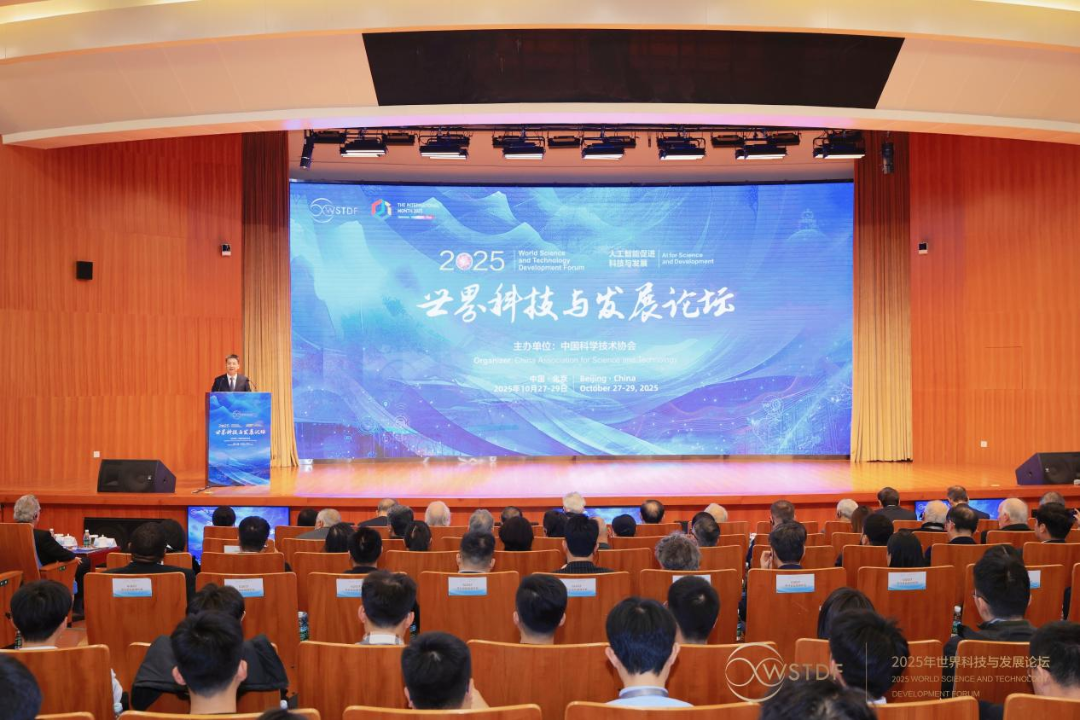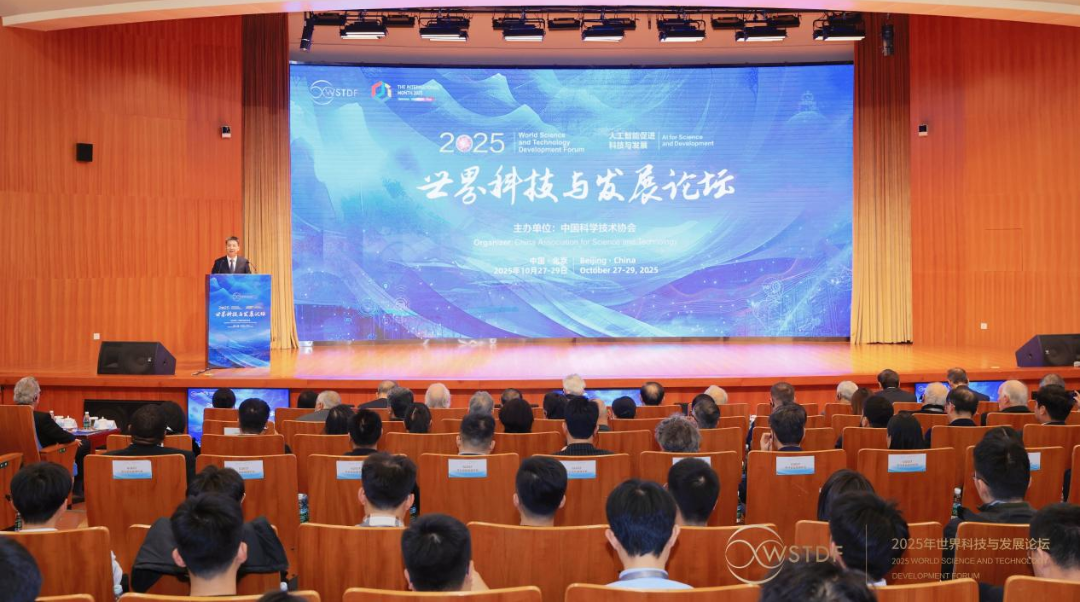
Opening of the 2025 World Science and Technology Development Forum [Photo provided to China.org.cn]
As artificial intelligence (AI) emerges as a powerful force shaping both science and development, international scientists and experts shared their insights on AI applications and governance with China.org.cn on the sidelines of the 2025 World Science and Technology Development Forum.
Salvatore Aricò, CEO of the International Science Council (ISC), emphasized the need to make sure that AI remains at the service for science and technology.
Aricò explained people cannot generate new knowledge just by putting together existing knowledge without applying the principles of science, which are to review the knowledge we have to make sure it is corroborated by data which is of the greatest quality.
Aricò also noted that AI is potentially a great accelerator of scientific discoveries by helping people make sense of large bodies of data and knowledge which may have some implications and applications but remain currently unclear. But, this, he stressed, has to be framed within the principles and operations of science.
Lena Halounová, president of the International Society for Photogrammetry and Remote Sensing, highlighted the complexity of the AI topic, saying AI represents a huge amount of software, mathematics, and data. It is something that one single person alone cannot process.
She warned that although AI is a fantastic tool, people using it have to be very experienced to avoid inaccurate data. She stressed the personal role remains at the highest level when using AI to produce good results.
Halounová also hoped countries around the world would raise public awareness of AI and share AI knowledge so they can better understand the results generated by AI tools.
Bill Moran, publisher of the Science family of journals of the American Association for the Advancement of Science (AAAS), said the world is probably in the middle of the biggest paradigm shift in the last several decades. Against this backdrop, he was concerned with how AI can advance science to serve society. He mentioned examples of AI improving healthcare and climate change, but also cautioned it is important to establish standards and checks to ensure AI is used in the right way.
Moran, as a publisher of science journals, also held discussions with thought leaders regarding the best practices for open science and open access. .
Imraan Patel, deputy director-general for research developments and support at South Africa's Department of Science, Technology and Innovation, noted the numerous benefits of artificial intelligence in fields such as education, healthcare, and scientific research. However, he expressed appreciation for the 2025 World Science and Technology Development Forum's emphasis on addressing the challenges and risks associated with AI technologies.
Patel also conveyed his hope that, given China's significant experience, scale, and advancements in AI, the nation will assume a leading role in shaping global AI governance frameworks.
Patel also stressed the need to foster cooperation among scientists not only across borders, but also across disciplines to pursue technology convergence.
Speaking of AI's role in upgrading traditional industries, Manzoor Hussain Soomro, founding president of the ECO Science Foundation and recipient of the 2020 Chinese Government Friendship Award, said that this process needs not only hardware and software support but also human resources capacity building. Workers in traditional industries need to be well versed in new technologies, particularly in AI.
On AI governance, Soomro voiced concerns that AI is taking on a growing role in decision-making. While offering opportunities, it may also pose a threat to our shared future.
Soomro also expected China, a leader in AI, to play an important role in global AI governance to ensure it is used for positive purposes and the wellbeing of the planet.
On open science, he emphasized that research findings and technological innovations are open-source and accessible to users and the general public, an approach that should be practiced by the entire global scientific research community. Soomro also commended China's preference for sharing advancements.
Mohammad S. Obaidat, IEEE Life Fellow and professor at Monmouth University and the University of Jordan, highlighted how artificial intelligence can accelerate scientific and technological progress while enhancing accuracy across disciplines. During the forum, he pointed to real-world applications of AI in electric vehicles, aviation, supply chain management, data science, and other critical sectors. Obaidat also endorsed China's proposed guidelines for AI governance, stressing the importance of globally unified standards and ethical protocols for responsible AI development and deployment.
Speaking of cooperation with China, he suggested collaborations like the exchange of university students, faculty and staff, as well as joint research projects to identify opportunities.
Gregory Zacharewicz, president of the Society for Modeling and Simulation International, SCS, demonstrated the merit of AI based on his expertise in modeling and simulation. He believed that China can bring to the world some very interesting results regarding the application of AI across different fields, especially in manufacturing, which is his focus area.
Michael Meadows, professor at Nanjing University's School of Geography and Ocean Sciences and former president of the International Geographical Union, described artificial intelligence represents a huge opportunity to advance development, in particular sustainable development. Citing fears that AI may ultimately cause more problems than it resolves, he expressed hope that China would take a leading role in devising and offering effective approaches for AI governance.
The seventh edition of the World Science and Technology Development Forum convened on Monday through Wednesday in Beijing, gathering 120 participants from more than 33 countries and regions. Attendees included representatives from 36 international and national organizations, who engaged in discussions centered around the theme "AI for Science and Development." During the opening session, major outcomes were highlighted that reflect China's collaborative achievements with the global science community in frontier fields such as sustainable development, hydrogen energy, intelligent manufacturing, and open science.


 Share:
Share: 




 京公網安備 11010802027341號
京公網安備 11010802027341號